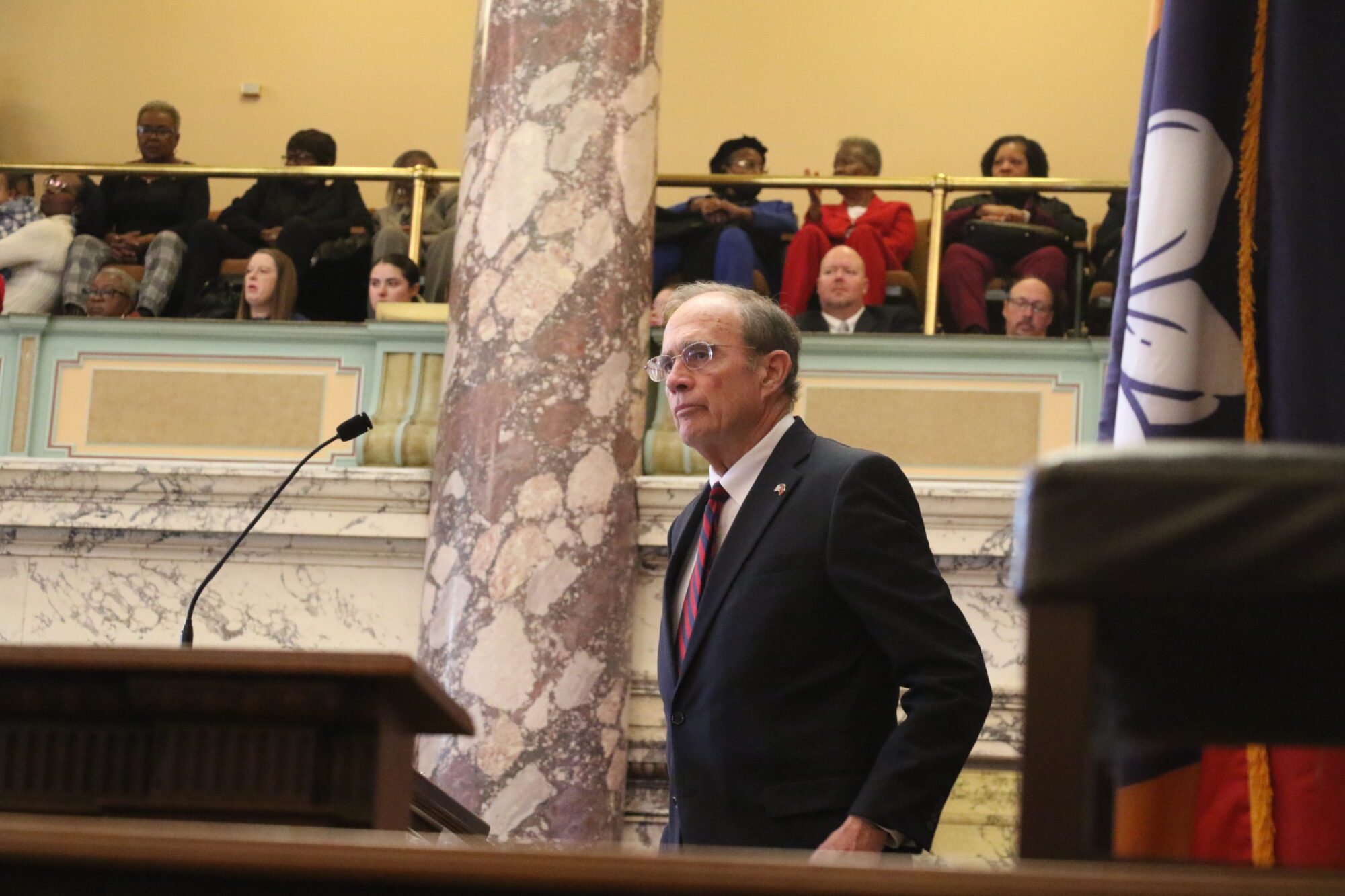
Lt. Gov. Delbert Hosemann prepares to gavel Mississippi's state senate into the first day of 2024's legislative session. (Photo by Jeremy Pittari)
- The House passed a similar measure that also included K-12 schools on Wednesday. The two chambers will now swap bills.
For more than an hour, a heated debate raged in the state Senate over eliminating DEI at Mississippi’s public institutions of higher education.
The bill, SB 2515, is twofold. It creates a task force to investigate why Mississippi has one of the lowest college graduate rates in the nation. The second and most controversial would eliminate Diversity, Equity, and Inclusion programs from the state’s public universities and community colleges.
“This bill is about leveling the playing field,” said State Senator Tyler McCaughn (R), explaining the legislation before it passed by a vote of 24-14.
State Senator Nichole Boyd (R), the bill’s author, said the REFOCUS Act “is something I am proud of.” The teacher said she is seeing advancements in elementary school reading and math scores, and this bill is a way to continue the success.
Under the 16-page bill, all public universities and community colleges could not offer training, programs, admissions, or hiring based on race, sex, color, ethnicity, gender identity, or sexual orientation.
Some Mississippi institutions of higher learning are already rolling back DEI programs. Three have renamed or rebranded their DEI programs, and another eliminated a DEI coordinator position.
Passions on both sides of the debate were on full display on Thursday.
McCaughn defended the bill by saying it gives all Mississippians a chance to flourish at state-funded institutions of higher learning. However, many Democrats cited the state’s segregated past in their opposition.
State Senator John Horhn (D) said, “Having diversity and inclusion at the University of Mississippi isn’t a bad thing,” adding that until the mid-1970s, Mississippi would pay African Americans to attend out of state colleges, including Ivy League schools.
“This bill is putting the new Mississippi to rest and bringing forth the old Mississippi,” Horhn said.
“Today, we are looking at our new 1890 Constitution,” said State Senator Hillman Terome Frazier (D). “This bill is bad for Mississippi.”
Sen. Horhn suggested recommitting the bill as he saw common ground among some members across the aisle. McCaughn opposed recommitting the bill, saying the bill sponsors had worked diligently on the measure. A roll call vote to recommit ended in defeat.
In his closing remarks, McCaughn said, “Abandoning DEI doesn’t mean we are abandoning diversity.”
Lt. Governor Delbert Hosemann (R) commended Senator Boyd and the Senate Universities and Colleges Committee for their months of work on the legislation. He was pleased the Senate supported the bill which created the Mississippi University System Efficiency Taskforce and “outlaws DEI in our institutions through a strategic, thoughtful, comprehensive, and effective approach.”
“Merit, qualifications, and academic performance should be the sole basis of evaluation in our universities and colleges,” Hosemann said on social media after the vote. “No one is superior or inferior based on race, gender, or identity and should be assessed on experiences, talents, and qualities as individuals. State dollars should focus on efficiently providing a quality, fair education to build a strong workforce in Mississippi.”
READ MORE: Senate, House look to roll back DEI in Mississippi’s universities
The House passed a similar bill intended to eliminate DEI in Mississippi universities and community colleges on Wednesday. However, that measure also included K-12 public schools.
The chambers will now swap bills for consideration.











